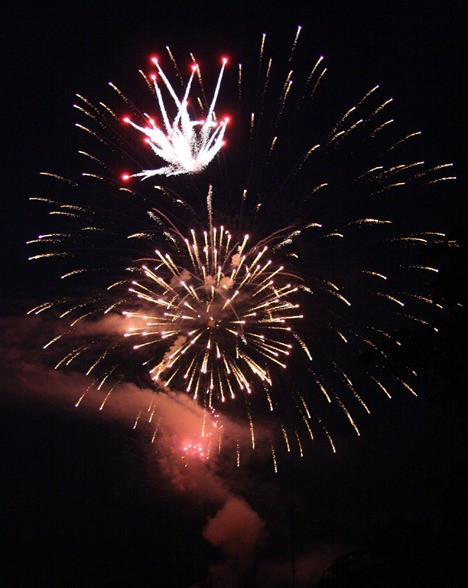A San Juan County Superior Court judge has overturned a ban on the use of so-called safe and sane fireworks because of a technicality. Islanders will vote on the measure again in November.
The decision was made March 15 by Friday Harbor attorney Don Eaton, filling in for Superior Court Judge Alan Hancock (Eaton becomes judge full-time March 22).
Eaton nullified the results of the November election in which voters narrowly approved a ban on the use of all personal fireworks; that vote upheld an earlier ban approved by the County Council. The council’s ban was challenged by Burkhart’s Fireworks Unrestricted and a referendum placed on the ballot.
The ban was to take effect prior to this year’s July 4 celebration. Eaton’s ruling means the ban will be set aside and that the referendum will be back on the ballot this November, according to Prosecuting Attorney Randy Gaylord.
“If the ruling stands, it means the fireworks ordinance as adopted will continue to be suspended until November 2010,” he said.
The county has until March 29 to appeal or seek a revision of that ruling, Gaylord said.
Eaton determined the county failed to notify the referendum’s sponsor, Burkhart, as required by state law after several “editorial” changes were made to the referendum ballot title prior to the election. Those changes were made about a month or so after Burkhart had been given a draft of the ballot title for review.
Burkhart took the county to court after the election, contending changes were made to the ballot title without his knowledge and that those changes created confusion in the mind of voters. The fireworks ban was approved by 4,096 voters, or 53.5 percent, and rejected by 3,561 voters, or 46.5 percent, a difference of 535 votes.
The use of fireworks that explode, like firecrackers, or that fly into the air, like Roman candles, already is prohibited by local law. The ordinance approved by the council extended the fireworks ban to include those considered “safe and sane,” such as fountains, pinwheels, snakes and sparklers.
Gaylord does not dispute that the county failed to notify Burkhart of the changes to the ballot title. He contends, however, that they were minor and technical in nature, and done only to ensure that the question put before the voters complied with local election rules.
Furthermore, he said Burkhart, who acted as his own attorney, failed to demonstrate to the court that whatever confusion voters may have had was significant enough to sway the outcome of the election.
Still, Eaton determined the lack of notification was enough to require a do-over.
“A referendum sometimes can be confusing just on its own,” Gaylord said. “In referendum, people vote on the ordinance, not on the referendum itself.”





